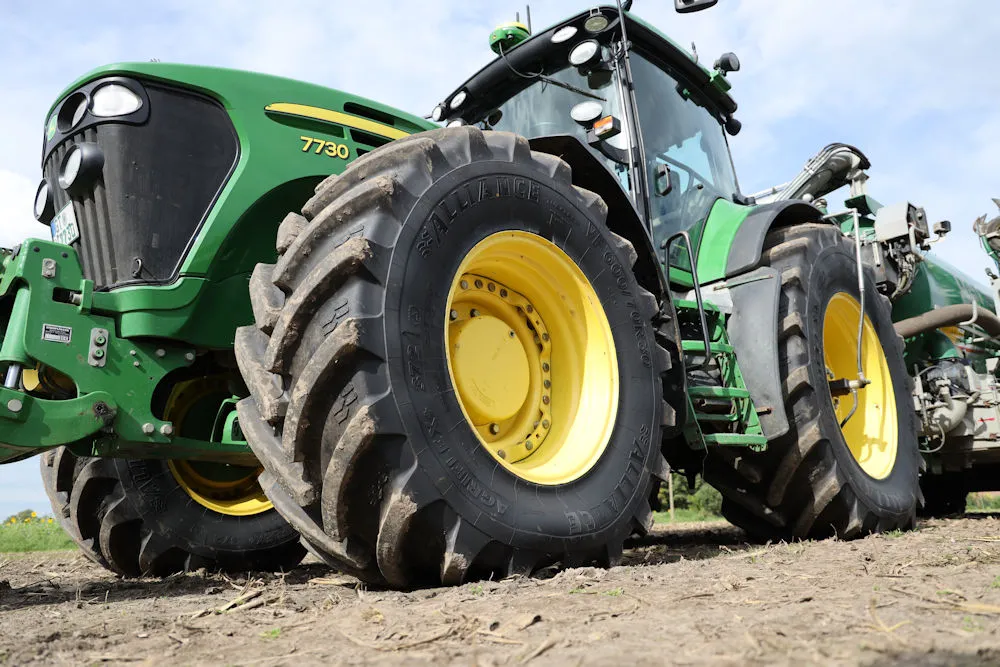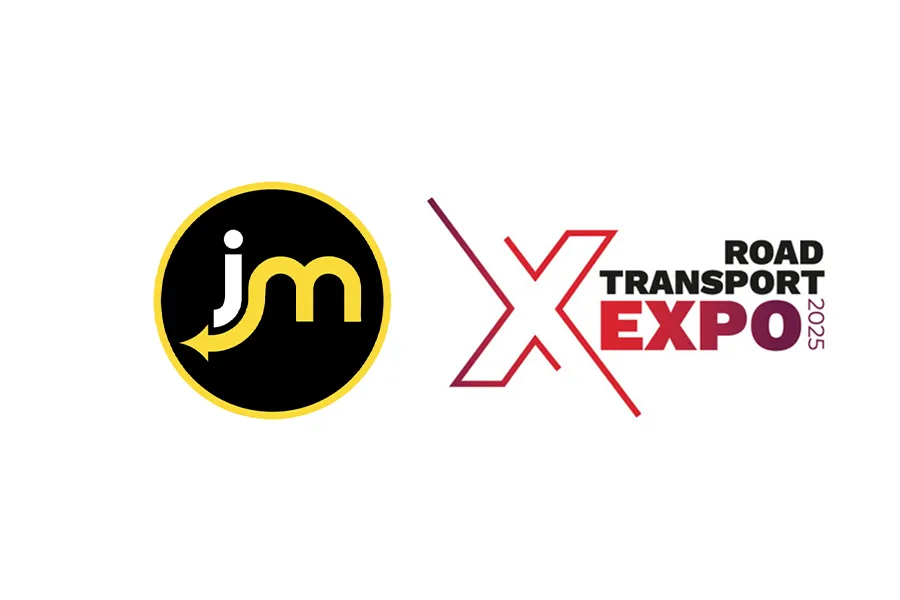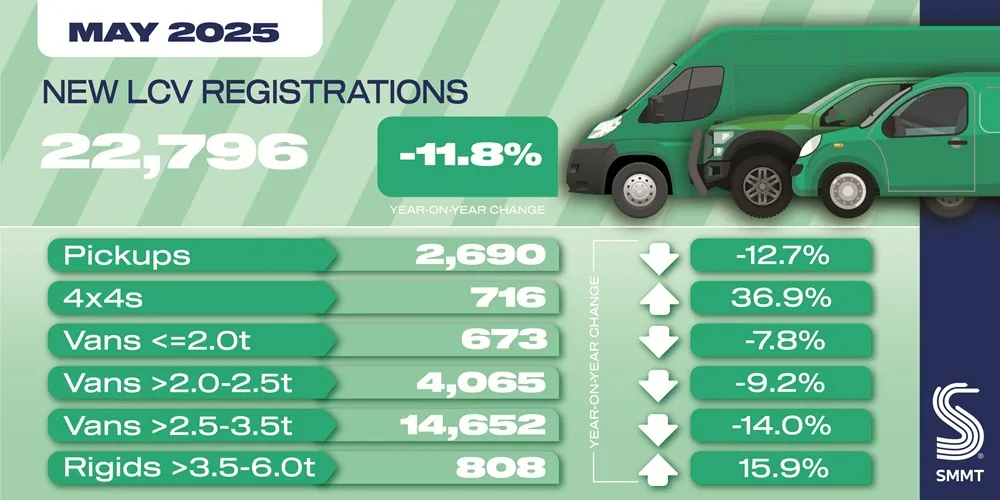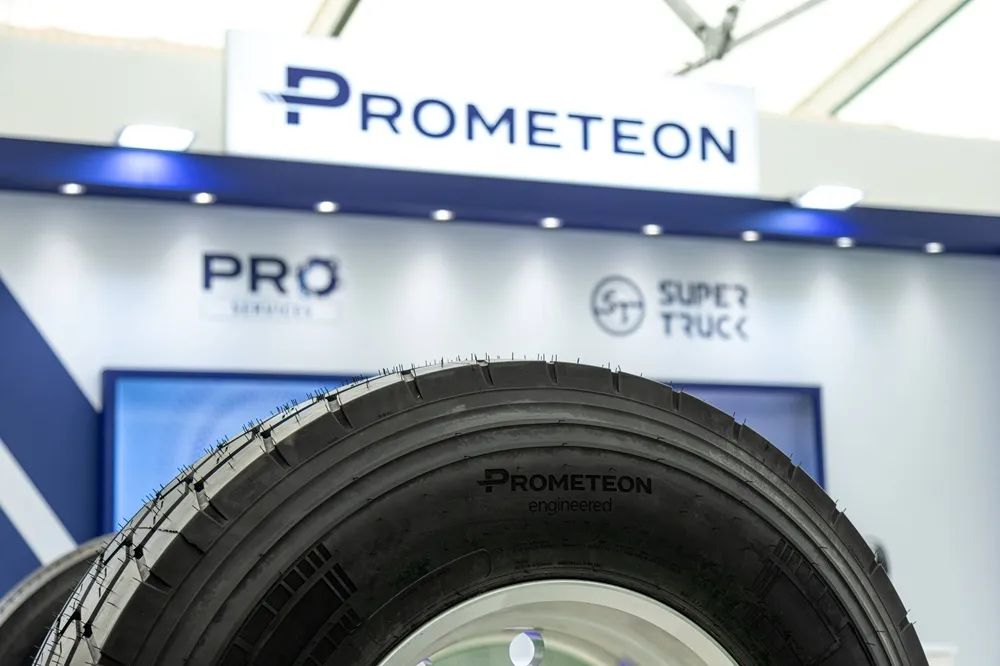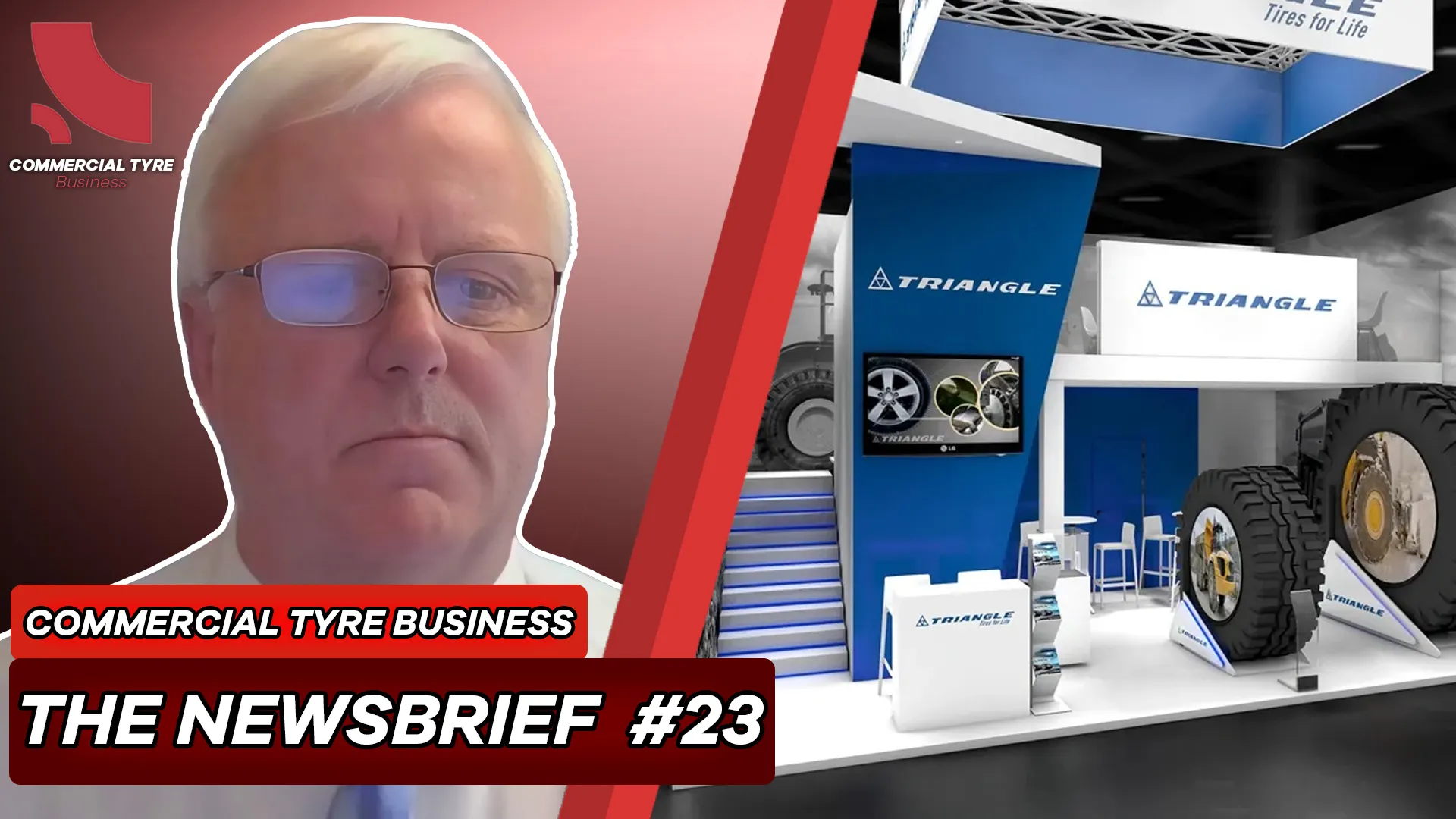Alliance’s Jojan VL, VP Product Management for the European Region speaks about agricultural tyres
Alliance VF tyres minimise soil compaction but offer on/off road operation
The agricultural market is varied and different sectors have different needs. How do you attribute a given tyre to any given sector? For example, does an arable farmer need a different tyre type to a livestock farmer?
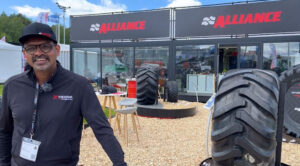
Alliance’s Jojan responds; “Performance expectations differ depending on the application. For example, machinery needed for pure agricultural farming as opposed to livestock farming requires distinct features. Moreover, the time spent on roads and fields varies depending on the type of farming and varies from farm to farm. Types of surface, moisture levels or types of machine/implements all can change the tyre designs.”
So, it would be reasonable to ask what end users should be looking for in agricultural tyres? What are the key buying points they should be thinking of?
“Farmers in European countries hold high expectations concerning parameters like air pressure for soil protection, traction performance, fuel efficiency, and road comfort,” says Jojan. “Ultimately, every farmer or contractor pursues a product that offers optimal value, maximising benefits in relation to costs. Even with the same technology, different tyre patterns can yield significantly varied performance outcomes for farmers over time. Soil cleaning is no longer merely a performance feature but also a regulatory requirement in many countries. Also, tyre aesthetics can’t be ignored anymore. Unmatched performance along with aesthetics were key contributors for our successful series called Agri Star II “
Agricultural tyres are perhaps one of the last strongholds of the bias tyre market, but is that increasingly coming under pressure from the radial market, or perhaps the VF tyre?
“Whether it is productivity, fuel efficiency or soil protection, the contribution of a tyre is significantly high. VF tyres can help farmers reduce compaction force on their soils by 40 per cent, or carry higher loads than conventional radials without increasing compaction. We believe that increase in CTIS adaptation to the agriculture sector is growing very fast. The growth rate of CTIS is one of the fastest in this sector,” explains Jojan.
“Keeping this technology in mind we introduced the Alliance 373 VF series recently. These will give us excellent flexibility on road and field with CTIS systems. Whether ride comfort or superior traction in the field, this design can give the best solution. The goal was to offer a hybrid, which is best to both field operations as well as road transportation. With the new Alliance VF 373, we are combining the best characteristics of lug and block type technology, which enables our tyre to perform like a true all-rounder in all applications. This design comes with 5 distinct features.
- Unique hybrid design (variable pattern pitch) for ON/OFF road comfort experience.
- Stratified Layer Technology (SLT) to compensate loss of traction over period of time and improve braking properties
- Agriflex + VF Technology for low pressure operation with R1W deep tread
- Steel belts for wider foot print and stubble damages.
- Special stubble resistant compound
“The all-new VF will be the next market mover in the agriculture tyre market. In radial tyres, most of the load (up to 80 per cent) is carried by air pressure, but in our VF technology some of the load is also carried by structural components which allows single digit air pressure operation. Our sidewalls are designed for improved flexion. A unique feature of the steel belt tractor / harvester series offers excellent stubble protection and flat footprints. Some of our internal testing shows that steel belt VF tyres show extremely good tractive properties in soft soil at a given slip%. This will bring extremely good productivity in critical soil preparation operations.
Soil compaction is a real issue. How do you advise your clients to adapt their tyre use to minimise soil compression?
“Many farmers still fear low pressure due to their historical experience running higher pressures, or even the maximum pressure stamped on the sidewall of the tyre. The lowest tyre air pressure gives the best yield for a crop,” says Jojan. “Modern tyres allow them to operate at very low pressures, even single digit air pressures in field operations at low pressure to minimise soil compaction. As we reduce air pressure the footprint increases not only in width but also in LENGTH. An increase in the length of the footprint is the key to minimise soil compaction and increase traction in field operations. We are confident that our tyres can perform at the correct recommended air inflation pressure possible with a TPMS system. Numerous studies have demonstrated that employing low air pressure systems in farming processes, particularly through a Total Farm concept where every machine enters the field equipped with VF (Very High Flexion) tyres, leads to improved productivity, sometimes by as much as 10 per cent, and better crop yields compared to standard radial tyres.”
Digital technology is often presented as the solution to maximising performance – how do you see digital technology impacting upon the agricultural sector?
“Technology is evolving rapidly, online data driven decision making is getting more traction in agriculture farming’” explains Jojan. “TPMS data capturing systems are also common in the Ag sector. We are currently working on traction and compaction simulation technologies to predict tyre behaviours under various pressure/load / soil conditions. When farmers and OEMs realise the real benefits of CTIS systems, the digital data tracking will reach the next level. We can maximise VF benefits and machine productivity with CTIS and online pressure controls.”

